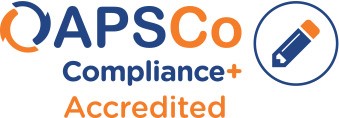The teaching profession in the UK is undergoing significant changes as schools respond to evolving educational demands, technological advancements, and shifting societal priorities. For newly qualified teachers (NQTs), understanding the latest trends can help navigate the job market and identify exciting opportunities in the sector.
A Vital Connection
1. Rising Demand for STEM and SEND Teachers
One of the most notable trends in the UK is the increasing demand for teachers specialising in STEM (Science, Technology, Engineering, and Mathematics) and Special Educational Needs and Disabilities (SEND). With a national focus on preparing students for careers in technology and science, schools are actively recruiting teachers with expertise in these subjects. Similarly, the growing emphasis on inclusion has led to more opportunities for educators with SEND qualifications or experience.
2. Focus on Mental Health and Well-being
In the wake of the COVID-19 pandemic, schools have placed a heightened focus on student mental health and well-being. Teachers who are trained in pastoral care, emotional resilience, and fostering safe learning environments are in high demand. Many schools now seek staff who can support mental health initiatives and collaborate with counsellors and support staff to address student needs holistically.
3. Opportunities in Rural and Underserved Areas
Teacher shortages persist in rural and underserved regions of the UK, such as parts of the North East, East of England, and South West. Newly qualified teachers willing to relocate to these areas are often offered attractive incentives, including enhanced salaries, relocation support, and career development opportunities. These positions provide a chance to make a significant impact in communities with limited access to educational resources.
4. Technology-Driven Teaching Roles
As UK schools embrace technology, proficiency in educational technology (EdTech) is becoming a sought-after skill for new teachers. From interactive whiteboards to online learning platforms like Google Classroom, teachers who can integrate technology effectively into their lessons are better positioned to succeed in the modern classroom.
5. Commitment to Diversity and Inclusion
Diversity and inclusion have become central to UK schools’ ethos. New teachers from diverse backgrounds or those trained in delivering culturally responsive education are increasingly valued. Schools are keen to build staff teams that reflect the diversity of their student populations and foster inclusive learning environments.
6. Hybrid and Flexible Roles
The demand for hybrid and flexible teaching roles is growing as schools adapt to changes in learning delivery. Teachers with experience in virtual teaching or the ability to balance classroom and remote instruction are particularly well-suited for these roles. This trend is especially prevalent in independent and academy schools, which often lead the way in adopting innovative practices.
7. Retention and Career Development Opportunities
With retention remaining a key challenge for the education sector, many UK schools now offer structured career development programmes to attract and retain new teachers. These programmes often include mentorship schemes, CPD (Continuing Professional Development) opportunities, and pathways to leadership roles, giving NQTs a clear route for professional growth.
Conclusion
The teaching job market in the UK is rich with opportunities for new teachers who are adaptable, skilled, and eager to contribute to an ever-evolving education landscape. By staying informed about these trends and aligning their skills with emerging needs, NQTs can secure rewarding roles and make a lasting impact in schools across the UK.
Whether it’s specialising in SEND, embracing EdTech, or stepping into leadership, the future is bright for new teachers committed to shaping the next generation.












